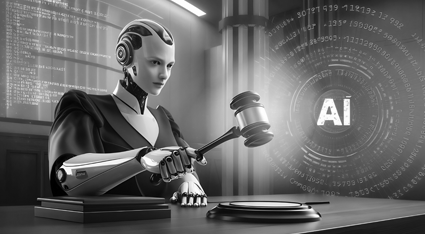Introduction
AI is at the core of digital transformation, reshaping industries by automating operations, enhancing customer experiences, and enabling data-driven decision-making. Businesses that embrace AI-driven transformation are achieving faster innovation, greater efficiency, and a competitive edge in their respective markets.
In 2025, organizations that fail to integrate AI into their digital strategies will struggle to keep up with competitors who are leveraging AI to optimize workflows, personalize services, and streamline decision-making. AI is no longer just an enabler—it is the driving force behind the future of business transformation.
How AI is Transforming Industries
AI in Healthcare: Enhancing Patient Care and Diagnostics
AI-powered diagnostics, predictive analytics, and robotic process automation are improving patient outcomes. AI assists doctors in detecting diseases early, personalizing treatments, and optimizing hospital operations.
AI in Finance: Risk Management and Fraud Detection
Financial institutions are using AI to detect fraudulent transactions, optimize credit risk assessment, and automate compliance processes. AI enhances decision-making by analyzing financial data and predicting market trends.
AI in Retail: Personalized Shopping and Inventory Management
AI enables retailers to offer personalized recommendations, predict demand, and optimize inventory levels. AI-powered chatbots enhance customer engagement, while computer vision improves in-store experiences.
AI in Manufacturing: Smart Factories and Predictive Maintenance
AI-driven automation and IoT-powered predictive maintenance are reducing downtime and improving production efficiency. Manufacturers use AI to detect defects, optimize supply chains, and enhance operational safety.
Key Benefits of AI in Digital Transformation
Faster Innovation and Agility
AI accelerates product development, streamlines operations, and enables businesses to adapt quickly to changing market demands.
Improved Customer Experience
AI-driven chatbots, personalized recommendations, and predictive analytics enhance customer interactions and satisfaction.
Operational Efficiency and Cost Reduction
AI-powered automation reduces human intervention, lowers operational costs, and improves overall business efficiency.
Enhanced Data-Driven Decision-Making
AI analyzes vast amounts of data in real time, providing business leaders with actionable insights for strategic decision-making.
How Enterprises Can Implement AI in Digital Transformation
Identify AI Opportunities Across Business Functions
Enterprises should assess where AI can drive the most value, such as customer service automation, supply chain optimization, or risk management.
Deploy AI-Powered Analytics and Automation
Organizations should integrate AI-driven analytics tools, machine learning models, and automation platforms to streamline operations.
Modernize IT Infrastructure with AI and Cloud
AI adoption requires cloud-based infrastructure and scalable data processing capabilities. Businesses must invest in AI-friendly IT ecosystems.
Train Employees for an AI-Enabled Workforce
Successful digital transformation requires upskilling employees and creating a culture that embraces AI-driven innovation.
Challenges in AI-Powered Digital Transformation
AI Integration with Legacy Systems
Many enterprises rely on outdated IT systems that are not AI-compatible. A phased AI adoption approach ensures smooth integration.
Data Privacy and Security Concerns
AI-powered systems must comply with data protection regulations and ensure secure handling of sensitive business data.
Change Management and AI Adoption
Employees may resist AI-driven transformation. Organizations must prioritize training and change management initiatives.
The Future of AI-Driven Digital Transformation
AI is redefining digital transformation by enabling businesses to operate more efficiently, innovate faster, and improve customer experiences. Organizations that integrate AI-driven automation, predictive analytics, and intelligent decision-making will lead the next wave of digital transformation.
The future belongs to enterprises that embrace AI as a strategic enabler. The question is not whether to integrate AI—but how quickly businesses can adopt AI-powered solutions to stay ahead in a rapidly evolving digital landscape.







